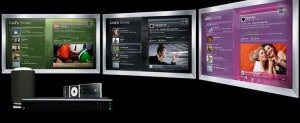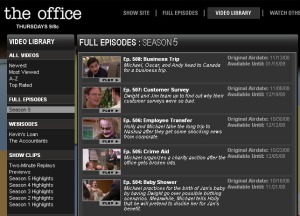Today Disney and Hulu confirmed the long-running rumor that Disney would join News Corp. and NBC Universal as equity partners in the most successful professional video content site. According to the Wall Street Journal, Disney will take an equal share by ponying up a similar amount of cash that the prior equity investors put in.
I applaud this move. It’s going to bring short-term and long-term benefits to the industry. This move:
- Creates needed short-term online advertising efficiency. I’ve recently written a report for Forrester about the struggles of online TV shows, including Hulu, when advertisers are cutting back every expense. By joining forces and standardizing the ad buying process, ad formatting, pricing, and so many other friction-laden processes, these major networks are going to keep some portion of ad revenue that might otherwise have been lost.
- Keeps YouTube on the professional video sidelines. YouTube had made a good effort to bolster its online TV show offerings with some CBS content and some links to ABC. But it hasn’t been enough to change what users expect from YouTube. (Tidbit: While YouTube accounts for nearly half of all video views, it only accounts for less than a fourth of video minutes because people go there for short clips.) With ABC clearly aligned with Hulu, it makes it less likely that any of these players will care to sustain YouTube’s online TV ambitions in the future.
- Makes it nearly impossible for CBS not to join. CBS has invested millions in its own effort and it may not want to give that up. But so did ABC — in fact, ABC was really the boldest of the networks in terms of technology investment and strategic energy. With the other 3 networks heading down the yellow brick road arm in arm, it makes sense for CBS to benefit from the same market power Hulu will now command.
- Sets up the cable industry for Hulu 2.0. If you’re paying attention, you have noticed that neither Hulu nor ABC have shown up on the Xbox, the Roku player, Blu-ray, Connected TV or any other over-the-top solution. This is because they are saving themselves for the cable industry. They don’t want to upset the cable industry, sure, but more importantly they want to position themselves to partner with cable to deliver Hulu 2.0 to the cable subscriber. Where Hulu 1.0 will remain free for online viewers, Hulu 2.0 will provide not just 4 episodes of a TV show, but all the seasons of the show to date, plus back seasons, and even new release movies. And all of this will be available online as well as on the TV. That experience will be available to premium cable subscribers and the revenue will be shared back to Hulu.
What do you think it means? For content players, device makers, consumers?



 Posted by James
Posted by James 


You must be logged in to post a comment.